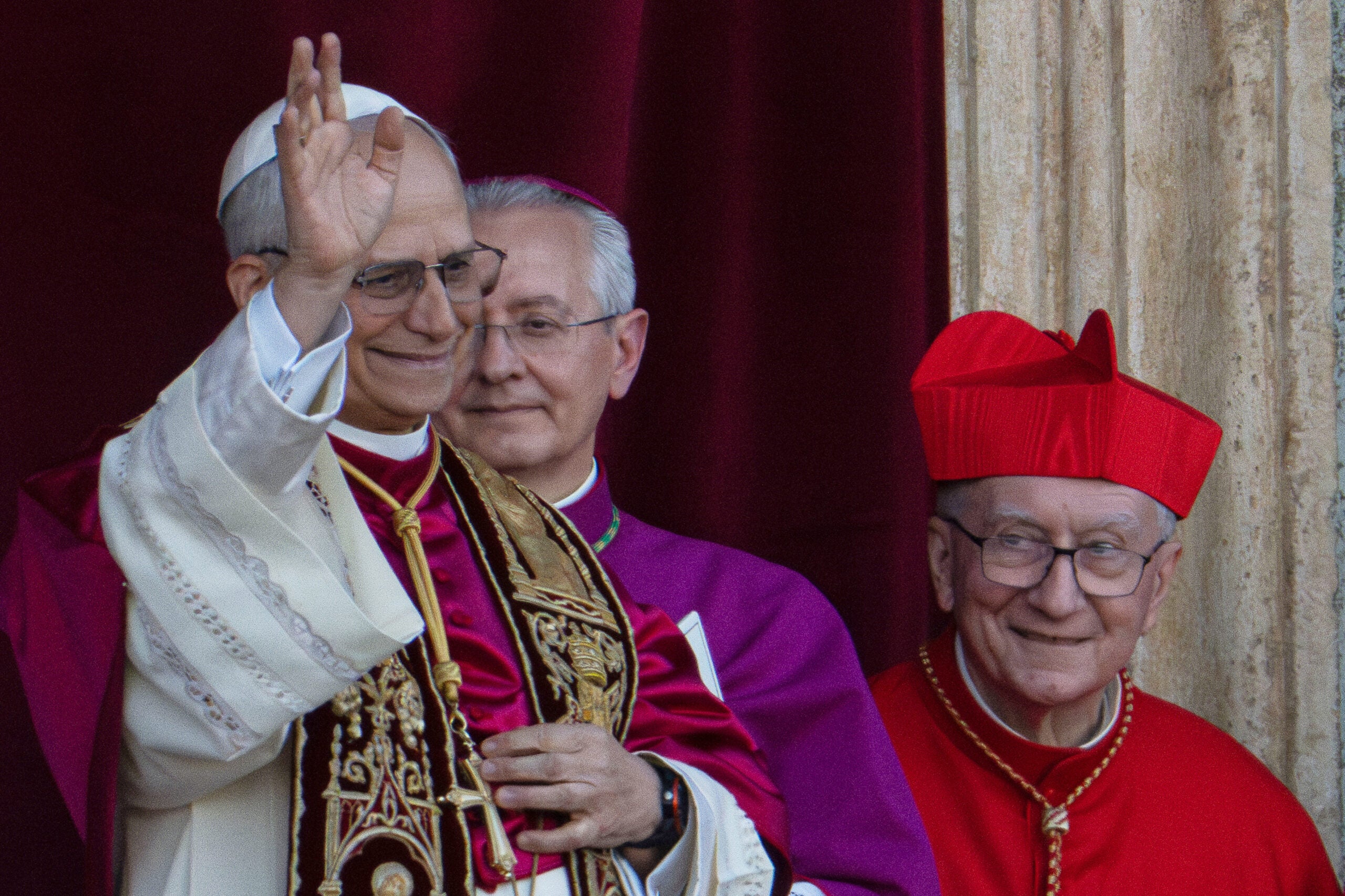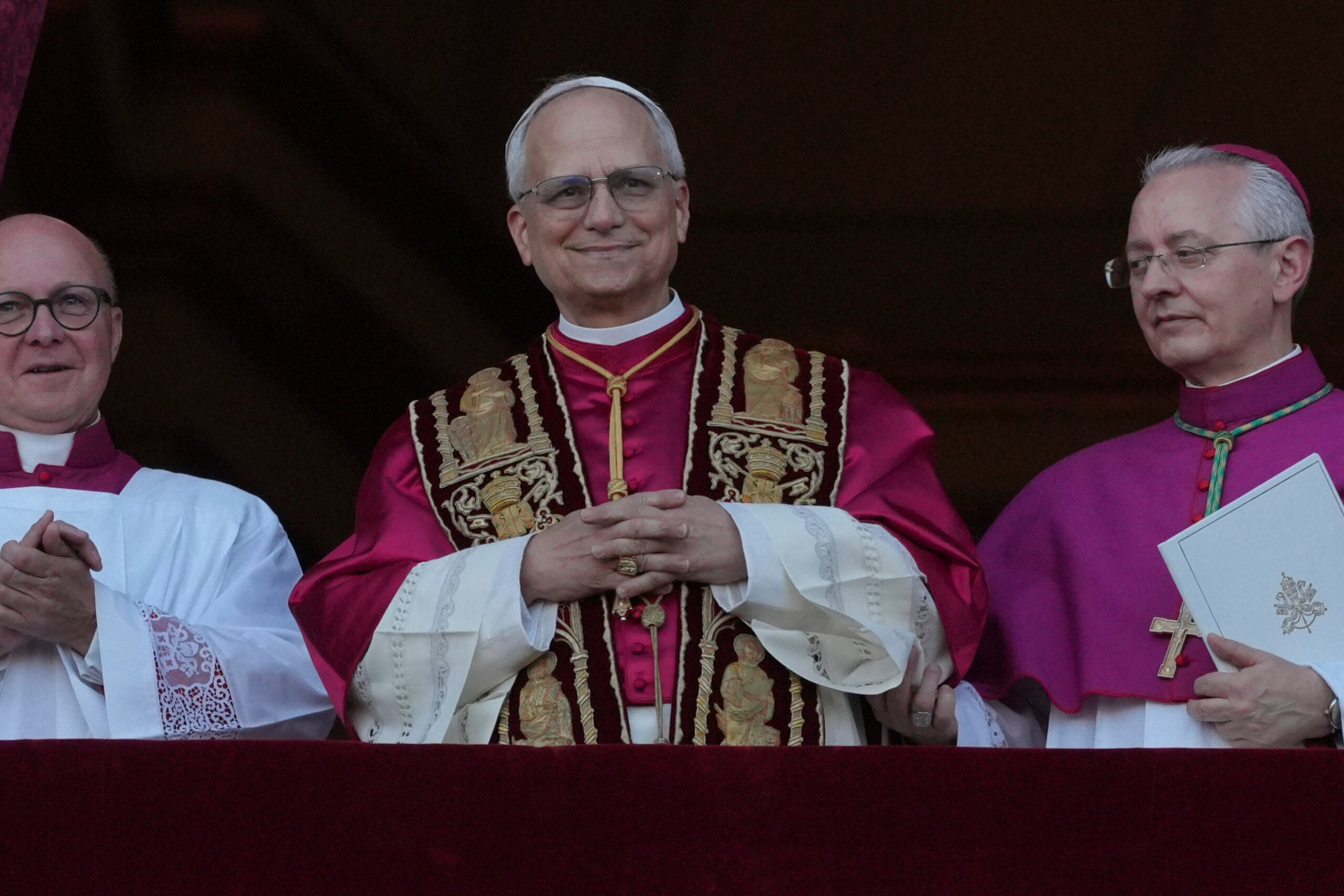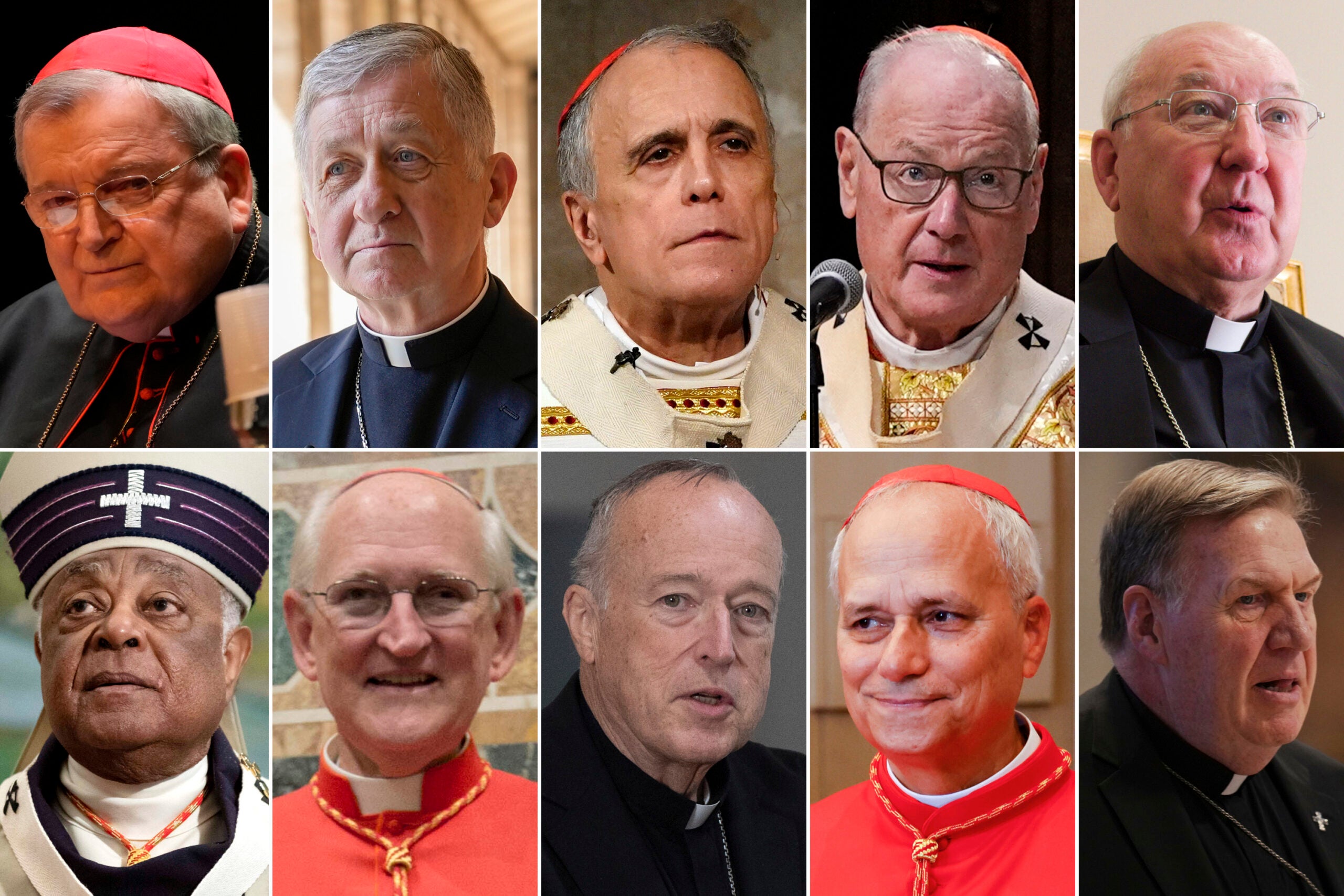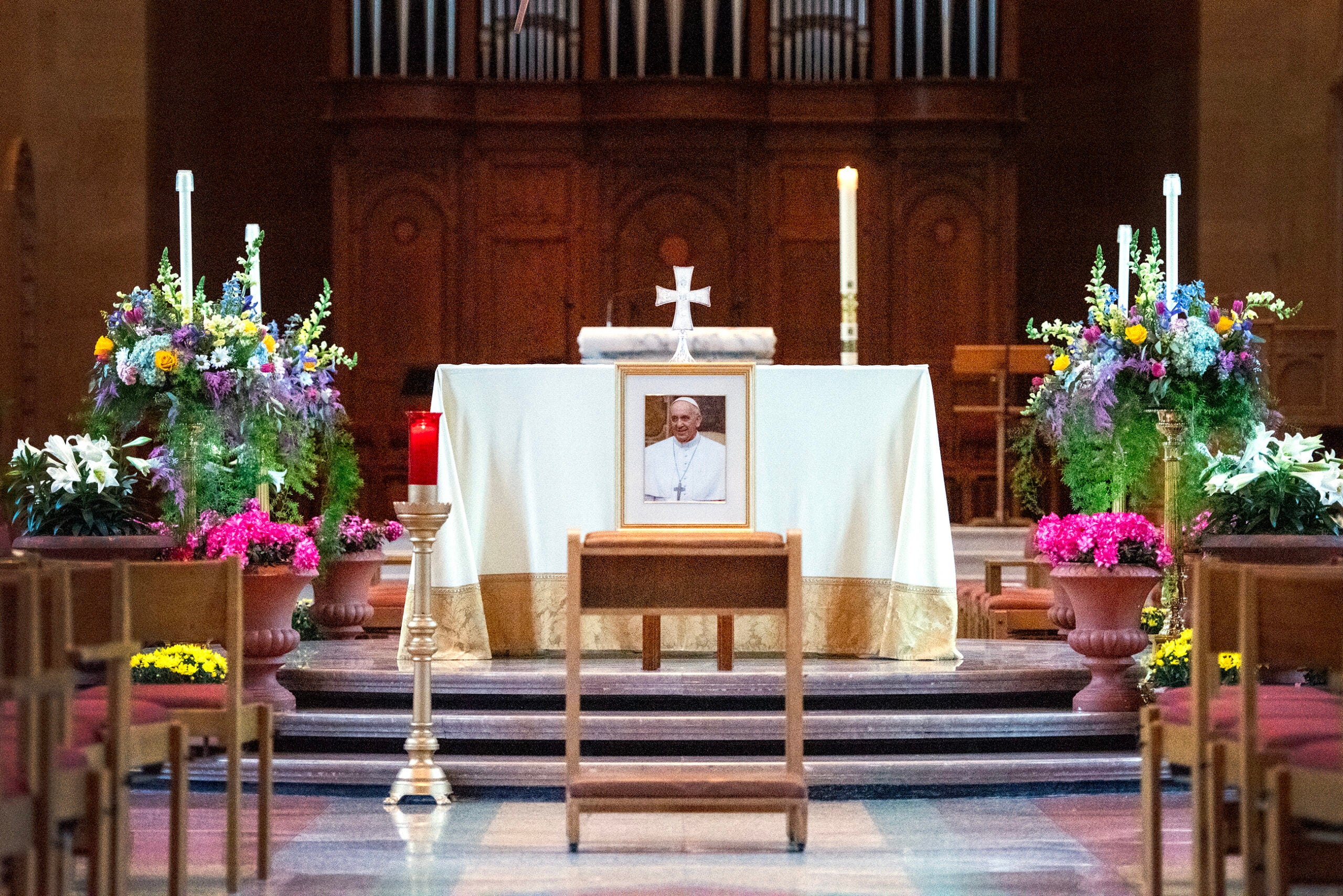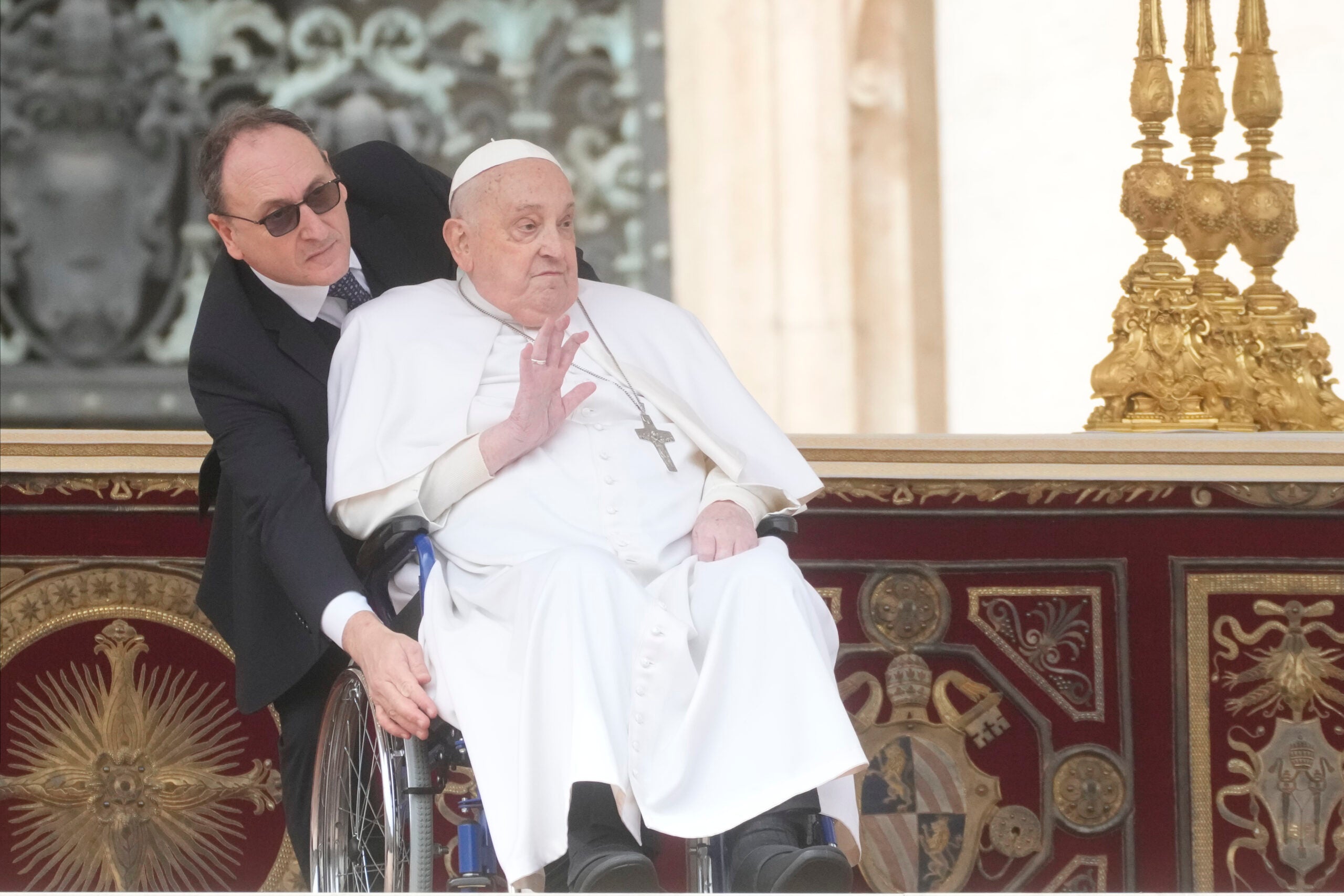Some Wisconsin Catholics say it’s not surprising to see Pope Francis take action against Wisconsin-native Cardinal Raymond Burke.
The Associated Press reported on Tuesday that two people briefed on the measures say Francis has decided to revoke Burke’s right to a Vatican apartment and salary. One of the sources said Francis had reasoned that Burke was a source of “disunity” in the church.
Burke, 75, has strong ties to Wisconsin. He was born in Richland Center, and served as bishop of the Diocese of La Crosse for nine years beginning in 1995. He founded the Shrine of Our Lady of Guadalupe in La Crosse and continues to serve as the president of the board of directors there.
News with a little more humanity
WPR’s “Wisconsin Today” newsletter keeps you connected to the state you love without feeling overwhelmed. No paywall. No agenda. No corporate filter.
It’s not the first time that Burke has clashed with the current pope. In 2014, Francis removed Burke from his position as head of the Vatican’s highest court. The Associated Press reported that Burke has been one of the most outspoken conservative critics of the pope’s outreach efforts to LGBTQ+ Catholics and to other initiatives to make the church more responsive to the needs of churchgoers.
Marie Fleisner is a Catholic from Marshfield and knows some of Burke’s family who still live in Wisconsin. She said the former La Crosse bishop is very conservative and is part of what she sees as a growing division within the church.
“I think there is that disunity, and sometimes when leaders speak out very publicly, then people kind of choose sides, and it’s not good for the church,” she said.
Fleisner, who is a member of the Council of Catholic Women, said she’s heard mixed reactions from Catholics in her community, with younger, more conservative leaders saying Francis is wrong for removing Burke. But she said there is also a group who feels that the church should follow the pope’s direction.
“Cardinal Burke has often been very outspoken in his criticism of the pope and that maybe is not the right thing to do,” she said. “I don’t consider myself a liberal, but I would not be very pleased to see the church go back to the old ways.”
Rev. Jim Bretzke is a Jesuit professor at John Carroll University who is originally from Milwaukee. He said Burke no longer has an official role at the Vatican and most U.S. cardinals have left Rome when they are no longer employed there.
“What Pope Francis said was, he’s not working for the church, not in any official way really, and if anything, he’s working against the church, and so we’re not going to pay any more to subsidize that kind of behavior,” he said.
Bretzke said Burke has a long history of public action over political differences. He pointed to 2004, when Burke was bishop of the Diocese of La Crosse and said former Democratic U.S. Rep. David Obey should be denied communion because he would not take a public anti-abortion stance.
He said Burke represents “a step beyond being conservative” and has long been a reactionary figure in the church.
“The people that like that kind of a church will be dismayed by what happened to Burke,” he said. “But those who I think are more in line with the Vatican II church, Pope Francis and trying to move forward, keeping liberals, moderates and conservatives together, I think that they probably would say privately, if not publicly, yes, it’s time for Burke to go.”
Wisconsin Public Radio, © Copyright 2026, Board of Regents of the University of Wisconsin System and Wisconsin Educational Communications Board.



